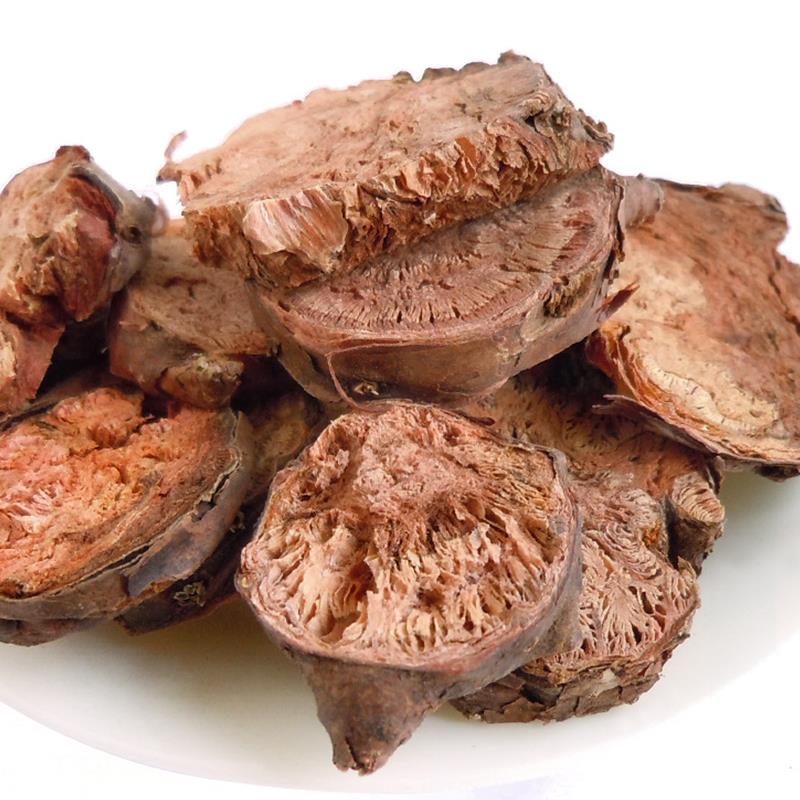Rhodiola rosea is a plant that grows in the cold mountains of Europe and Asia and is also known as Arctic root or golden root. Rhodiola root contains more than 140 active ingredients, including phenols, rosavin, rosin, rosalin, organic acids, terpenoids, phenolic acids and their derivatives, flavonoids, anthraquinones, alkaloids, tyrosol and salidroside and other active ingredients, of which the two most effective are Rosavin and Salidroside. Rhodiola rosea has been used by people in Russia and Scandinavia to treat adverse physical reactions such as anxiety, fatigue, and depression. It can be used to improve energy levels and relieve stress and enhance cognitive function. In recent years, some research suggests that Rhodiola rosea may have potential benefits for people with diabetes.
Recently, a study published in Scientific Reports found that treatment in mice with Rhodiola root extract may help control type 2 diabetes, promising to be a safe and effective non-drug alternative to diabetes treatment. The researchers tested the effects of R. rosea root extract on leptin receptor knockout (db/db) mouse type 2 diabetes models. To assess the effects of rhodiola rosea on a mouse model of type 2 diabetes, the researchers treated a group of 6-week-old leptin receptor knockout (db/db) mice with rhodiola Rosea extract; The experimental group was given 25 mg/kg rhodiola rosea extract by oral tube feeding every day for 4 weeks; Control group mice were given intragastric water; After completing the treatment at 10 weeks of age, the researchers found that the mice treated with rhodiola rosea extract had significantly lower fasting blood glucose levels than the control mice at 11 weeks of age. In addition, the blood glucose level of the rhodiola-treated mice continued to decrease within 2 hours after insulin administration, and the average glucose value was lower than that of the water-treated control mice at every time point. The control mice showed a sharp initial drop in insulin blood glucose (about 33% at 30 min;). But then blood sugar levels rise over the next 90 minutes. These results all suggest that R. rosea extract treatment modifies the response to insulin in diabetic db/db mice in complex ways, resulting in a longer response time to insulin.
Here are some ways in which Rhodiola rosea may potentially impact blood sugar levels:
Improve Insulin Sensitivity
The study in mice found that Rhodiola rosea extract improved insulin sensitivity. Insulin sensitivity is a measure of how effectively your cells respond to insulin, which plays a crucial role in regulating blood sugar levels. Improved insulin sensitivity can help glucose enter cells more efficiently, potentially leading to better blood sugar control. Another study found that Rhodiola rosea extract reduced the risk of developing diabetes in people with prediabetes.
Anti-Inflammatory Effects
Rhodiola rosea has been found to have anti-inflammatory properties, which may help reduce inflammation and improve blood sugar control. Inflammation is a chronic condition that is associated with many diseases, including diabetes. It can interfere with insulin signaling and contribute to insulin resistance, so reducing inflammation may benefit blood sugar control.
In addition, the study showed that regulation of the gut microbiome reduces systemic inflammation in a mouse model of type 2 diabetes. These observations suggest that targeting inflammation through the microbiome may be a novel way to treat type 2 diabetes and that Rhodiola rosea has been shown to have anti-inflammatory and gut microbiome regulatory effects.
Protect the beta cells
The beta cells in the pancreas produce insulin. In people with diabetes, the beta cells can be damaged, which can lead to a decrease in insulin production. Rhodiola rosea may help protect the beta cells from damage, which may help prevent or delay the onset of diabetes.
Reduce Stress
Rhodiola rosea is often used for its adaptogenic properties, which means it may help the body adapt to stress. Chronic stress can contribute to elevated blood sugar levels in some individuals, so managing stress effectively may indirectly help control blood sugar.
Is Rhodiola Rosea extract safe for people with diabetes?
Animal studies have shown that rhodiola rosea may help improve diabetes. The salidroside compound in rhodiola rosea has been shown to help prevent diabetes and diabetic nephropathy in rats. However, more research is needed to confirm these findings in human blood sugar regulation. Currently, there are no large-scale clinical trials that have investigated the use of Rhodiola rosea for diabetes.
Despite these potential benefits, it’s important to approach Rhodiola rosea as a complementary therapy rather than a sole treatment for diabetes or blood sugar management because it can interact with certain medications. If you have diabetes or are concerned about your blood sugar levels, it is important to talk to your doctor first. Rhodiola rosea can also cause side effects such as anxiety, insomnia, and headache.
Individual responses to supplements like Rhodiola rosea can vary, and there may be interactions with other medications or medical conditions. In addition, Rhodiola has a strong blood-activating effect, can cause uterine contraction, and pregnant women can not eat. Rhodiola Rosea is not currently approved by the FDA for the treatment of any disease, and there is no high-quality clinical evidence of its effectiveness for a substitute for medication. Remember, always consult with a doctor before adding any new supplements to your routine especially if you have diabetes or other underlying health concerns.
- Dandelion Extract: What It Is, Benefits, Uses and Side Effect - April 23, 2024
- Is Berberine Extract Help For Weight Loss? - April 11, 2024
- Why Is Pysllium Husk Powder A Popular Meal Replacement Ingredient? - April 3, 2024





